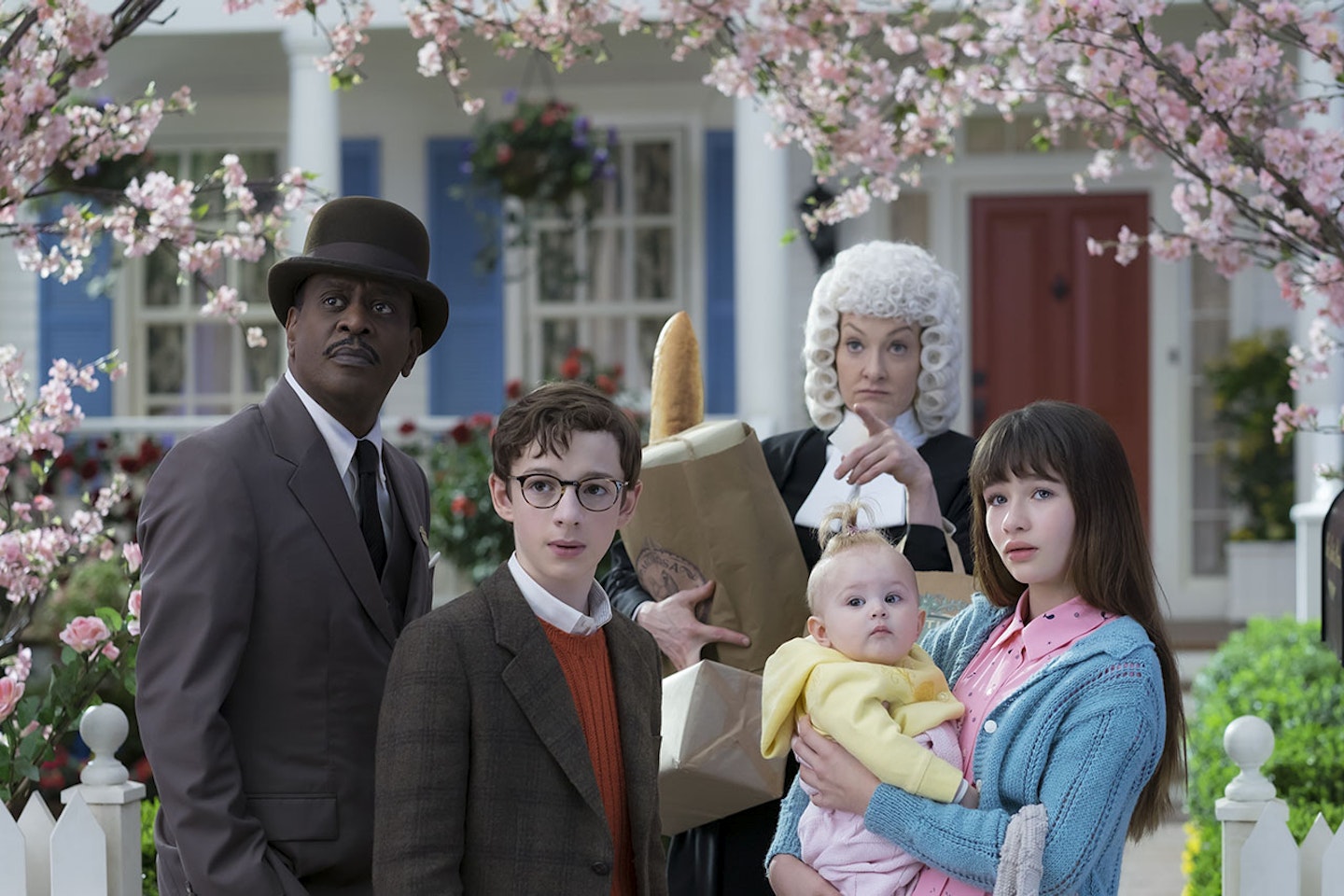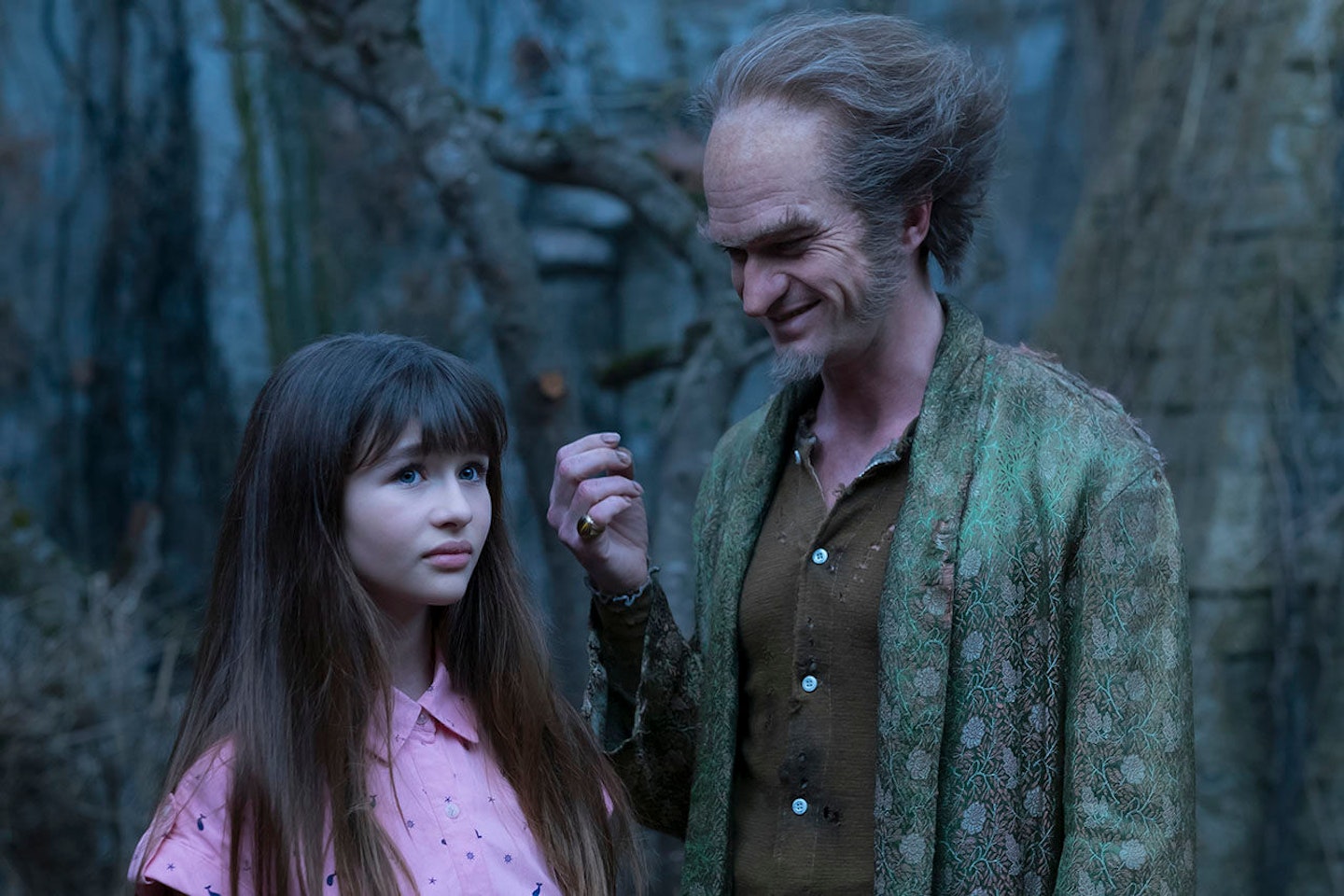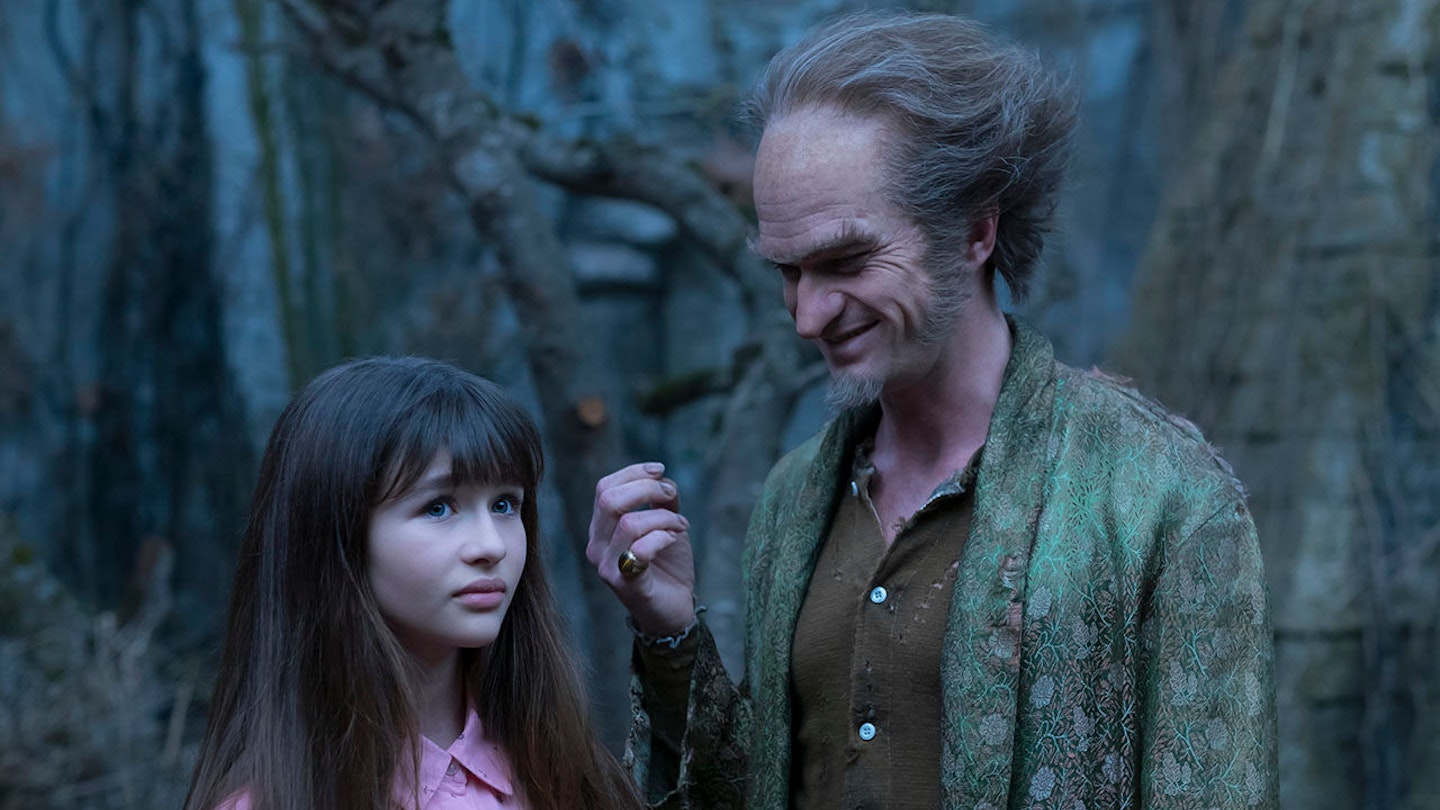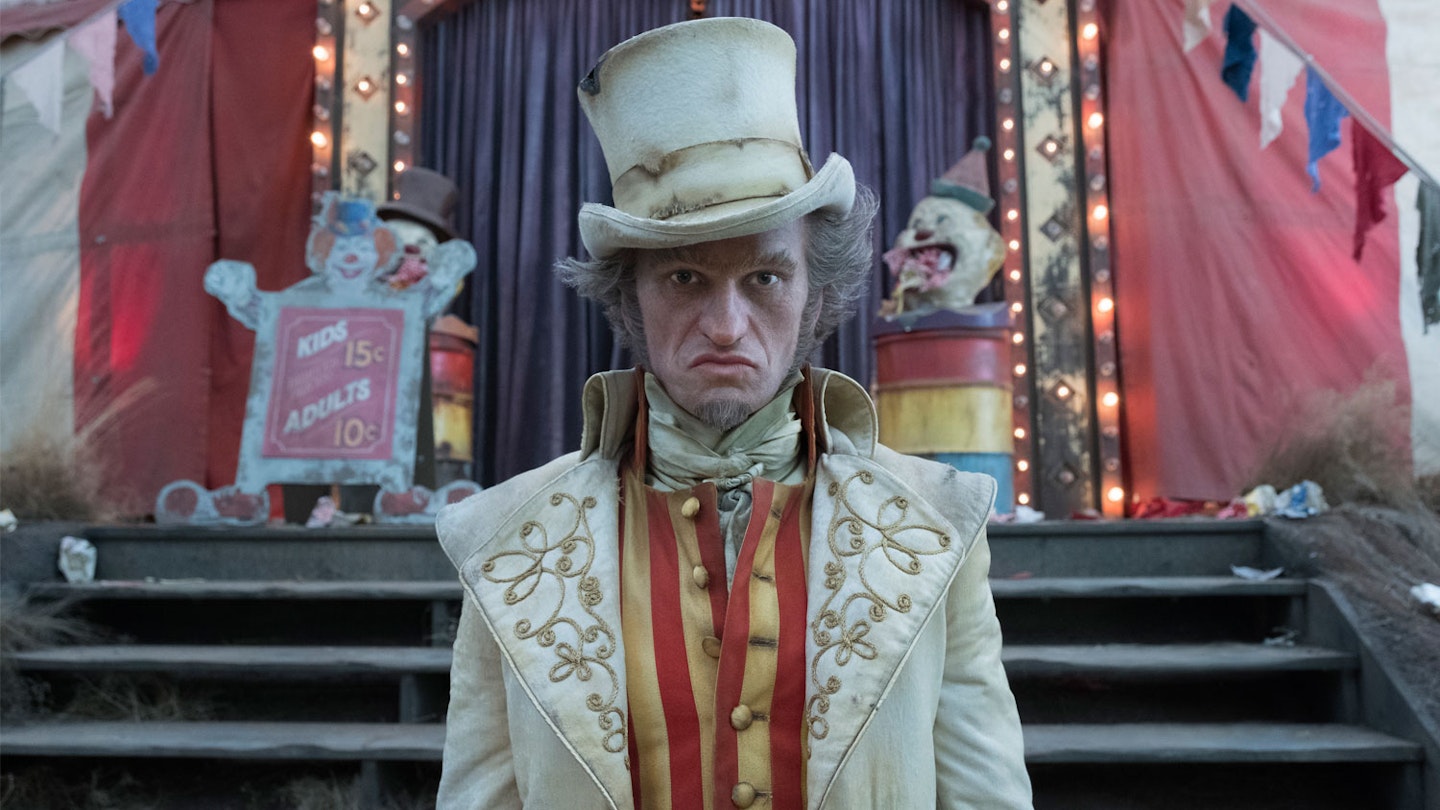A Series Of Unfortunate Events is just that. In it, three people are driven from one outlandishly miserable circumstance to another, pursued by a group of malicious brutes after their money. There is deceit, arson, murder, enforced labour and terrible, terrible luck. Did we mention it’s for kids?
As a series of addictive books, written by Daniel Handler under the nom de plume Lemony Snicket between 1999 and 2006, the tale deftly mixed comedy and horror, frequently warning the reader off and encouraging them to pick another, cheerier form of entertainment. A 2004 movie crammed the first three stories into one feature-length carnival of catastrophes, but a sequel never materialised, leaving the future of the Baudelaire orphans uncertain. Now, 13 years on, Netflix has stepped up to have a go at it. And the results are splendiferous, a word which here means they pretty much nailed it.

Instead of whizzing through each book as the film did, the show dedicates two whole episodes — runtimes of which last anywhere between 40 minutes and an hour — to each novel. This allows a lot more time for us to get to know the three beleaguered Baudelaire children: Violet (Weissman), Klaus (Hynes) and baby Sunny (Smith). As in the books they each have a singular trait (invents; reads; bites), and are both charming and so precocious they’re able to quote Haruki Murakami and Samuel Beckett at the drop of a hat. In this topsy-turvy universe, children are the only ones equipped to face the dark realities of the world. Every adult they encounter along the way is either sordid, a simpleton or both.
Which brings us to Count Olaf. One of the greatest literary ne’er-do-wells of the past two decades, the man described at one point as “a villainous actor and active villain” (his minions double as a theatrical troupe) is gloriously, fathomlessly despicable. As played by Jim Carrey in the movie, he was a highly strung ham who practically hummed with malevolence. Here, Neil Patrick Harris’ performance is more subdued, less bug-eyed, than Carrey’s; instead, the consummate awards host accentuates the character’s theatricality. With spiky tufts of eyebrow hair, a goaty goatee and a pointy prosthetic nose, plus a panoply of hilariously unconvincing disguises, Harris has a ball as the Lon Chaney wannabe. Olaf gets a big musical number (aside from the infectiously catchy, ever-mutating theme song, which Harris also sings) and bounteous time to indulge in his favourite pastime: evil monologuing.
Therein lies the main strength of the show. Handler’s books revelled in wordplay, with a delightful precision to the language. By giving each vignette space to breathe, the Netflix show, which has Handler on board as a writer, allows for the kind of witty asides the movie had to rush past. “You left me to drown,” one character angrily tells the Count. “Water under the bridge,” he replies, placatingly. “That’s where you left me!” comes the retort. With a strong pro-literacy message — the plot of one instalment even hinges on grammatical inaccuracies — it’s a celebration of smarts that never comes off as preachy. Most entertainingly eloquent of all is Patrick Warburton as Lemony Snicket himself, a lugubrious and dapper narrator who wanders through scenes like a ghost. His delivery ever desert-dry, he comes close to stealing the whole shebang.

Visually, the show is also a treat. Men In Black director Barry Sonnenfeld originally planned to direct the feature film; in the end he stepped aside for Brad Silberling and produced instead. Now he’s finally got his chance, directing four of these eight episodes. It’s a return to form, making up for last year’s awful cat caper Nine Lives — well, almost. With outlandish locations including Lake Lachrymose (a body of water so large it has its own weather system) and Lucky Smells Lumbermill (a timber-based Gulag with signs such as, “Safety goggles are unnecessary if they slow you down”), the sets are sometimes Tim Burton-y, sometimes Wes Anderson-y, but always fantastic.
It’s not perfect. Episodes can feel a little baggy and, by the story’s nature, it does get repetitive —binge-watching the Baudelaires is like mainlining Wile E. Coyote cartoons. But it’s hard to quibble with an adaptation done with such gusto. By the end, you’ll likely be willing the next series of Unfortunate Events to arrive.

